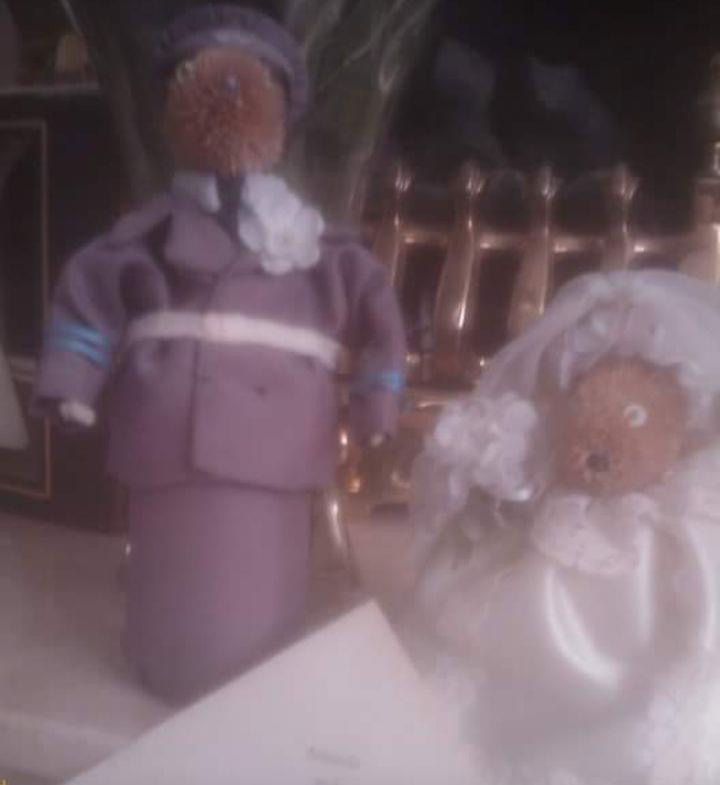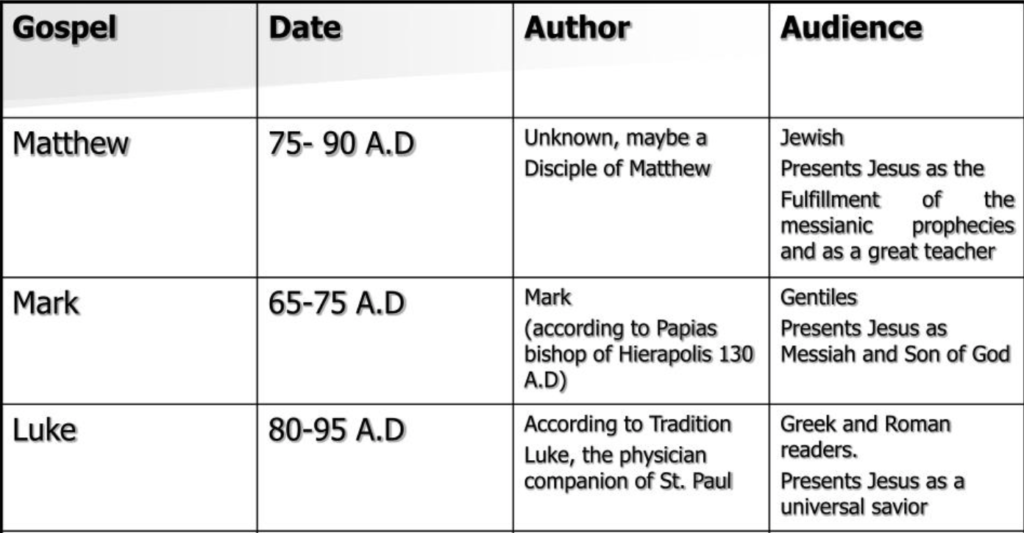
I didn’t have to think much about what I wore to the wedding. I had a uniform, so I put on my ‘best blue’. Do you think we look ok? What did we have to eat? I can’t remember! Can you think what you ate at the last wedding you attended? I can remember the church service but not much about the reception : where was God in all this?

In the series of readings for each Sunday we have seen a succession of parables about the Kingdom of Heaven from within Matthew’s Gospel. We have had some about Vineyards and this week, it is akin to a wedding banquet.
Jesus isn’t about the latest populist themes. It isn’t about filling church pews, or chairs, or even YouTube viewing figures but being a disciple.
Is this the point of the parable?
Wedding Banquet
A King (*) sends his slaves out to invite the guests to the wedding celebrations. However, amazingly, they fail to attend. So he sends out more slaves telling everyone that the sumptuous dinner is ready, possibly even boasting about how many fatted calves he has slaughtered. Not that appetising for a vegetarian perhaps. But where was God in all this?
We find that the slaves have been ignored or even mistreated, some killed. Troops are deployed to take revenge, even to the extent of burning the city.
More slaves are now sent out to invite everyone whom they can find, regardless of their character: good or bad.
The King then, upon welcoming the guests, saw that one of those who had arrived was not wearing the latest in wedding attire. “Bind Him!, send him into the outer darkness!“
And then that chilling line “For many are called, few are chosen”. Where was God in all this?
Luke’s Gospel
It’s odd that, according to scholars, both the authors of Matthew’s and Luke’s Gospel had other texts (the Q source) upon which to gain additional knowledge. Given that the scene with Jesus was in Holy Week (as we have seen in previous posts) we might think we are writing in the context of 33AD. Mark’s Gospel was probably written first, in around 65-75AD, with Luke’s account in 80-95AD. But Matthew’s Gospel wasn’t written, it is suggested, until well after the destruction of the Second Temple in 70AD.

So when Luke comments upon a similar scene we notice significant differences. Firstly, the King is ‘someone who gave a great dinner‘ (Luke 14:16), not a King. Slaves are eventually compelled to go out into the roads and lanes to get people to attend. Doesn’t make it sound very attractive does it?
There is also no additional story about being mis-dressed for the wedding.
Jesus responds to a dinner great who exclaims “Blessed is anyone who will eat bread in the Kingdom of God” with “None of those who were invited will taste my dinner” Luke 14:15-24. Ouch!
Where was God in all this?
How comfortable do we feel?
Many might suggest that God is the King in Matthew’s text. We have to remind ourselves that with the destruction of the Second Temple in 70AD, the followers of both Judaism and ‘the Way’ or Christianity, were beside themselves. New places to meet up amidst the Roman threat were to be found.
The slaves were considered to be both the Prophets initially and then the Church (in 70AD). The Prophets from the Old (or Hebrew) Testament had been ignored, mistreated or killed. The followers were also now being treated the same.
The guests were seen as Israel initially and then those outside of the Church. Israel who were invited but had turned their back on God.
The troops were from the Roman Garrison of the General Titus under newly ‘crowned’ Emperor Vespasian.
What about Matthew’s additional guest who wasn’t correctly dressed? Those who refuse to respond to God – as it says in Matthew 22:12 (last part) – those who pay lip service? Who’s that? Where was God in all this?
Is the wedding banquet Church or the Kin_dom of Heaven?
This parable is told of two different times, in two different contexts. In Holy Week and in 70AD. In looking to respond to the Chief Priests and Scribes so that they would understand. Recall that they had already been told “the tax collectors and prostitutes are going to the Kingdom of God ahead of you” – so they were still going… But also this text speaks about the state of the Church then, in 70AD.
So what does it say to us now?
The invitation is there, it has our name on it. There isn’t a date for the banquet nor a RSVP (perhaps younger readers won’t recall those).

All we have to do is respond. But respond not only in being there but in action. Our hope is not found by how much we do but by being and doing. Are we prepared to show up for God’s Kin_dom, and do the work of God in our context?
We can offer excuses, ignore the invitation, rip it up, and then watch as the invite is re-sent to everyone. Wow…everyone.

Whoa! Is this really the God we follow?
We might look at the best parts and ignore the unsavoury elements of this passage – but it starts with “the Kingdom of Heaven may be compared to“. Do we really have a God who behaves like this King?
One that invites and if you refuse smites you, akin to Noah or Lot? And who exactly is the one is incorrectly dressed and is subsequently thrown into the ‘outer darness’? Recall that this is a parable, not speaking of a literal place.
Amongst others, I feel that this could have been Jesus.
Do you wish to be compelled to attend?
What if the King were like a despot, a dictator who rules harshly. Would you really (willingly) attend the King’s banquet? Could the population of this kingdom actually be protesting? Further slaves were sent, and – I don’t agree with the killing – but they were harmed and even killed.
No vulnerability noted here, as commented upon in the last parable, just more vengeance, more troops. Destruction. Jesus’ teachings are about vulnerability, making room for the other, showing that we all are valued.
The slaves, if Luke’s account is heeded, compel people to attend. Now, the King could claim that the Wedding Hall was full, 100% attendance, how popular they were! The King is great!
Jesus in the last few chapters has entered a wealthy city, which is focussed upon the all-consuming concept of business. Jesus arrives on a donkey, subverting the Roman General’s method of arrival into the city on a white steed. The City is also hosting so many events with Passover – it’s crowded. Then Jesus is present, not following the rules, not dressed as was to be expected.
Kin_dom of Heaven
And in all of this comes Jesus. He represents the marginalised, from all walks of life, without bias. Jesus isn’t about the latest populist themes.
It isn’t about filling church pews, or chairs, or even YouTube viewing figures but being a disciple.
The Kingdom of Heaven is like a place where you are welcome as you are, made wonderfully by God. It isn’t a place where the majority rule – it truly is where everyone counts, everyone is valued. It isn’t a place where force is used to extract rule, there’s no compulsion but there’s an invitation to love. Where is God in all this? At the centre. Let’s ponder upon this in the days and weeks ahead.
Can we compare where we live with the Kingdom of Heaven? For God is here.
May be the original understanding is correct, and it is an invitation to a banquet. Or maybe Jesus was asking that question of them, us, that our invitation is not brought with a focus upon what it looks like for us, but merely about supporting the weak and welcoming the stranger within our midst.
What are your thoughts?
The word King in the Greek refers to the first, or a chief, one of the second of the nine Archons in Athens, one Paul would have met on his journey there. They were parallel to the Council of Areopagus. They would have been responsible for public worship, inclusive of many different forms including pagan, and conduct of criminal justice.
The word for slave (doulos) is yes a slave but also a servant and one whom serves, such as Jesus. The word Deacon etymologically comes from doulas.
The Greek metaphor seen in ‘outer darkness’ refers to ignorance.
2 thoughts on “What do you wear to a Wedding?”
Comments are closed.